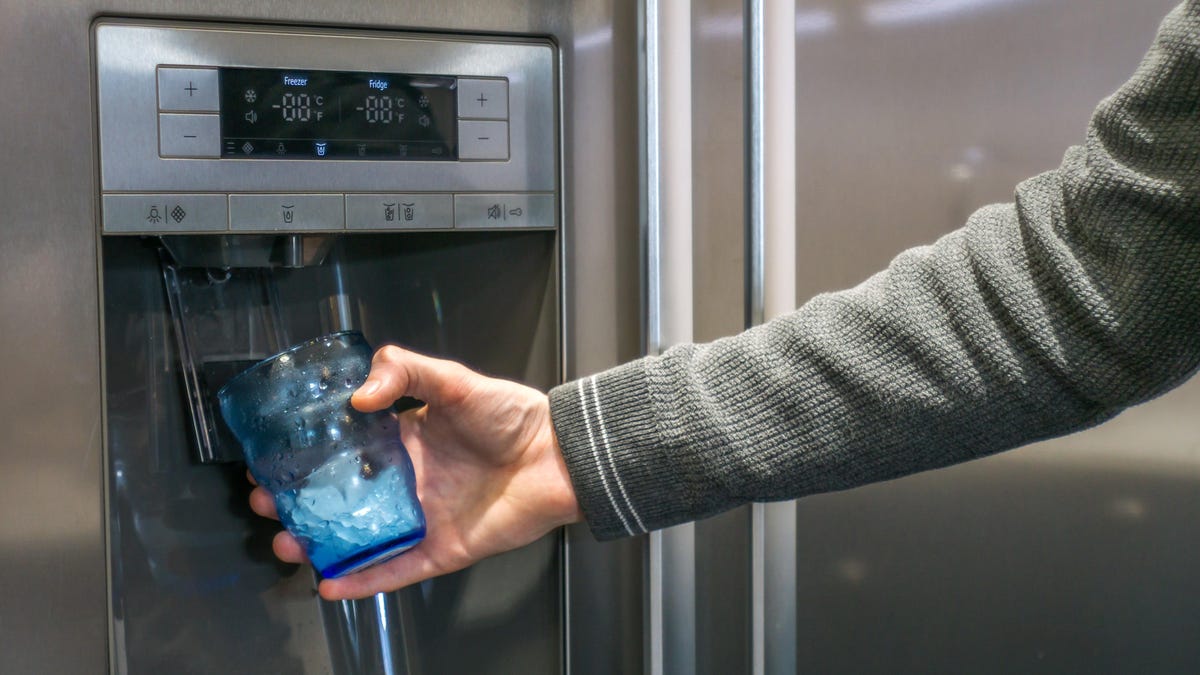Which countries can I travel to if I’m not vaccinated?
Here are the countries you can visit if you haven’t been jabbed

In the wake of the global pandemic, many countries across the world have decided to allow in only foreign nationals who have been fully vaccinated for Covid-19.
However, some Britons have chosen not to accept the vaccine, while many younger children or may not have been offered the jab.
While the likes of Spain, the US and Thailand have reopened to vaccinated travellers only, a number of countries have opted to open their borders, quarantine-free, to anyone with a negative test result - with various other forms, post-arrival tests and paperwork needed along the way.
Here are the places where you can enter the country without a jab - most with some admin strings attached.
Please note countries’ entry requirements are subject to change at short notice; do check the Foreign Office travel advice before you go.
Portugal, Madeira and the Azores
Lisbon, Portugal
(Getty Images/iStockphoto)
Portugal changed its rules in September to allow unvaccinated Brits to enter with a negative Covid test result from within the 72 hours (PCR test) or 48 hours (antigen test) before travel. You must also fill in a passenger locator card.
If you’re booking an antigen test, you must make sure it meets the standards set out in the EU common list of Rapid Antigen Tests; you must not use the free NHS tests, but get an official test result which “identifies the type of test taken and gives your name, date of birth, the date and time the sample was collected, and the date of the result”, say Portuguese authorities.
Visitors to the Azores archipelago do not need to be vaccinated either, but must present a negative antigen test result from within the previous 48 hours.
Visitors to the island of Madeira should complete its passenger locator form, but do not have to test.
Once on the ground, Portugal does require proof of vaccination to enter some venues and use some services.
Croatia
Pula in Croatia
(Getty Images/iStockphoto)
Unvaccinated travellers to Croatia can enter the country with proof of either a negative antigen test (issued within 24 hours of arrival), a negative PCR test (issued within 72 hours of arrival) or proof of recovery from Covid-19 within the past eight months.
You should also complete an online entry form and carry a copy of your accommodation booking with you.
Children under 12 arriving with an adult who has one of the above is exempt from showing these documents. Passengers arriving without a valid test certificate will be denied entry to Croatia.
Once on the ground, Croatia does require proof of vaccination to enter some venues and use some services.
Greece
Santorini, Greece
(Getty Images/iStockphoto)
With around a fifth of Greece’s economy dependent on tourism, this popular tourist destination was one of the keenest for UK holidaymakers to return. As such, unvaccinated travellers can enter the country with proof of a negative PCR test issued within 72 hours of arrival; or proof of a negative Covid-19 rapid antigen test from an authorised laboratory, undertaken within the 24 hour period before your arrival.
All travellers aged five and above need the test result to enter (children aged four and under are exempt and may enter with parents or guardians who have test results). All travellers also need to complete a Passenger Locator Form (PLF) before travel.
You may be subject to random testing on arrival in Greece, and will have to quarantine if you test positive. As of 24 December, the Greek government also “strongly recommends” that you take either a rapid antigen test or PCR test on both days two and four after arrival (but this is not enforced or tracked).
Once on the ground, Greece does require proof of vaccination to enter some venues and use some services.
Cyprus
Roman columns in Paphos, Cyprus
(Getty Images/iStockphoto)
Unvaccinated travellers to Cyprus must provide proof of a negative PCR test taken within 72 hours prior to departure, or an antigen test from within the past 24 hours. They must then pay to take another PCR test (€15-19) upon arrival, remaining in isolation until the result comes back - this should be no longer than three hours.
There then appears to be an optional post-arrival test: “72 hours after arrival in Cyprus, travellers may be required to undergo a rapid test at a mobile unit of the Ministry of Health and send the result to the email: monada2@mphs.moh.gov.cy. This is free of charge to those presenting a boarding pass at the testing site.” It is unclear how many visitors are required to do this, and how they are selected.
The Cyprus Flight Pass website does not accept the UK’s proof of recovery from COVID-19.
Children who arrive before their 12th birthday are exempt from the testing rules.
Unvaccinated visitors to Northern Cyprus must quarantine for five days on arrival.
Once on the ground, Cyprus does require proof of vaccination to enter some venues and public spaces.
Slovenia
Lake Bled, Slovenia
(Getty Images)
Unvaccinated travellers to Slovenia must provide a Digital Passenger Locator Form as well as either a negative result from a PCR test (not older than 48 hours) or a rapid antigen test (not older than 24 hours). If you can provide one of these, you do not have to quarantine.
Alternatively, unvaccinated arrivals will be allowed in with a positive PCR test result that is older than 10 days but more recent than six months old, confirming that the traveller has had Covid-19 and not more than six months have passed since the first symptoms.
Turkey
The Blue Lagoon, Turkey
(Getty Images)
Turkey will accept a negative PCR test result (taken within 72 hours before arrival) or rapid antigen test result (taken within 48 hours before arrival) as an alternative to proof of vaccination.
Turkey will also accept proof of recovery from Covid within the past 180 days. For children aged 11 and under, no test result or vaccination certificate is needed.
All visitors must also complete an online declaration form no more than 72 hours before arrival.
Ireland
Cliffs of Moher in Ireland
(Getty Images/iStockphoto)
As of 6 January, unvaccinated visitors to Ireland can enter with a negative PCR test result from within the 72 hours before travel, and must also fill out a Passenger Locator Form before departure.
Children aged 11 and under are exempt from testing. The Irish government also “advises all travellers to undertake daily antigen tests for five consecutive days, beginning with the day of arrival”.
Norway
Norway’s fjords
(Visit Norway)
As of 12 February 2022, Norway has lifted all Covid-related rules (testing, isolation, forms) for foreign tourists. As per the rest of the EU, Britons can visit for up to 90 days, visa-free, in any 180-day period.
“No testing, no quarantining, no registration... From Saturday, February 12, 2022, you can travel to Norway without having to worry about anything more than having a good time!” reads a statement on the tourist board’s website.
If you get ill and test positive for Covid-19 while in Norways, the authorities recommend that you isolate within your accommodation for four days. Although there is no longer a testing requirement, it is recommended that adults with symptoms test themselves, though this does not apply to children.
How about further afield?
Dubai
Dubai, the UAE
(Getty Images)
You do not have to be fully vaccinated to visit Dubai. All arrivals to the Emirates must present evidence of a negative PCR test taken no more than 48 hours before departure, regardless of vaccination status. This must be shown at check-in. Antigen tests are not accepted.
Visitors to Dubai will also have to register their details on the Covid-19 DXB App, as well as completing a health declaration form and a quarantine form. Both forms need to be printed, completed and handed over to Dubai Health Authority staff on arrival.
Dubai arrivals may also be asked to take a post-arrival test after landing - if so you must self-isolate until the result comes back.
If you test positive for COVID-19 in Dubai, FCO advice says: “depending on your symptoms and your accommodation plans, you may be required to self-isolate in a government facility, a hospital, your hotel or privately arranged accommodation for at least 10 days”.
Children under the age of 12 and those with severe and moderate disabilities are exempt from the testing requirement.
The rules for Abu Dhabi are different: As the UK is still on the Emirate’s “red list”, all unvaccinated visitors to Abu Dhabi must quarantine for 10 days on arrival there, with a test to release on day nine.
Israel
Haifa, Israel
(Getty Images)
Israel will allow unvaccinated tourists back into the country again from the beginning of March.
From 1 March, jabbed and unjabbed travellers of all ages will be permitted entry as long as they take two Covid tests: one before departure for Israel, and one upon arrival.
After your on-arrival test, you must isolate at your accommodation until the results of your PCR test arrive, or 24 hours have passed - assuming the test is negative, you are free to explore.
If the result of the test is positive, you must remain in home isolation for a minimum of 14 days, which can be reduced by taking a second PCR test on day seven. Only visitors from a country on Israel’s “red list” must isolate in a government appointed facility.
Visitors must also fill out an entry statement form within 48 hours before their flight to Israel.
Israeli citizens returning to Israel will not have to take a pre-flight test, but only a PCR upon landing.
Mexico
Cancun in Mexico
(Getty Images/iStockphoto)
Throughout the pandemic, Mexico has consistently had the fewest travel rules and next to no paperwork for arriving tourists. Britons travelling to Mexico must complete a health declaration form and scan the QR code it generates upon arrival in the country.
There is currently no requirement to provide a negative PCR test or quarantine on arrival, though many resorts ask guests to complete health questionnaires. Customs officials may also ask to see your proof of accommodation booking or provide contact information for while you are in the country.
Dominican Republic
Saona island, Dominican Republic
(Getty Images/iStockphoto)
This Caribbean nation will allow in unvaccinated visitors who can present a negative PCR test result from within the 72 hours before travel. Children under the age of seven are exempt from this requirement.
You will need to fill in a COVID Traveller’s Health Affidavit before travel.
However, random testing on arrival is a possibility, with authorities saying: “If a passenger tests positive for COVID-19, they will be required to isolate in an authorised location.”
Egypt
Feluccas on the Nile
(Getty Images/iStockphoto)
Egypt will accept a negative PCR test result from within the 72 hours prior to travel, or a negative lateral flow (antigen) test result from within the previous 24 hours, as an alternative to proof of vaccination. Children under the age of six may enter without either a test or proof of vaccination.
Passengers arriving from London Heathrow are, strangely, permitted to have their PCR test conducted within a longer timeframe - 96 hours prior to flight departure.
Tourist arriving directly into the coastal governorates (such as Sharm El Sheikh or Hurghada) are required to pay to take a test on arrival at the airport ($30 US), and must self-isolate at their hotel until the result is returned - usually within 12-24 hours.
Costa Rica
Costa Rica
(Getty Images/iStockphoto)
Unvaccinated visitors to Costa Rica aged 18 and older may enter without a Covid test or quarantine period, but must purchase a Covid-19 cover insurance policy that meets the country’s requirements.
This should have “a duration equal to the period of stay in the country, with the exception of passengers in transit, whose minimum validity is five days that covers, at least, medical expenses generated by Covid-19 and lodging expenses due to quarantine”.
It typically means a policy which covers $50,000 for medical expenses, including Covid-19 infection.
Find more information on the mandatory travel insurance rule here.

 MikeTyes
MikeTyes 































